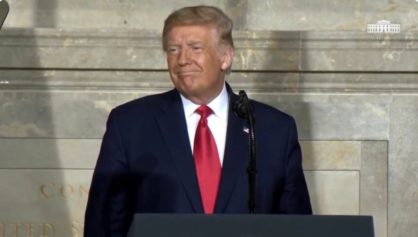
Aides on the balcony of the Lorraine Motel in Memphis, Tenn. with the stricken Dr. King.*New Book Says FBI Was Mastermind Behind MLK Assassination and Its Cover-up
As the nation celebrates what would have been Martin Luther King’s 87th birthday on January 15, we must ask some questions: What role did the FBI play in King’s assassination? What did they know, and what role did the agency play in covering up the truth about his murder?
It is no surprise that J. Edgar Hoover, the founder and head of the FBI until his timely departure in 1972, waged a war against Black America, civil rights leadership and Black nationalist organizations with his COINTELPRO program. As a result of the program — its role to “prevent the rise of a Black messiah”— Black leadership ended up murdered and imprisoned, and its institutions compromised and decimated. At one point Hoover called Dr. King “the most notorious liar in the country,” as the FBI monitored the civil rights leader, bugged his hotel rooms, and even sent him a letter encouraging him to commit suicide. But two authors believe the agency did even more, having a direct role in his assassination through FBI informants.
In their book, Killing King: The Multi-Year Effort to Murder MLK, Stuart Wexler and co-author Larry Hancock delve into the notion of a cover-up into the King assassination. Specifically, they allege that the FBI under Clarence Kelly, Hoover’s successor, misled Congress by destroying files related to the murder of King. Wexler says the bureau disobeyed a direct order to preserve all materials, destroying files in two field offices on Tommy Tarrants, a high-ranking Ku Klux Klan member from Mississippi, in 1977. This came as a new Congressional committee was established to investigate the assassination of King and President Kennedy. The author claims there was something about Tarrants that made the FBI upgrade him from an obscure racist to a major player in the assassination.
“I have no doubt this was done deliberately. They are not destroying everybody’s files, they are selectively destroying files,” Wexler told the Daily Mail. “They wanted Tarrants to give evidence to the committee; they didn’t want him to be a suspect.”
Meanwhile, according to Wexler, a man named Laude Matthews was in line to take over the leadership of the Mississippi Klan. Wexler refers to Matthews as “a big time deep cover agent for the FBI.”
“’We can imagine a situation where the FBI does not want the Congressional investigation to lead back to Laude Matthews,” Wexler speculated, offering that the Mississippi Klan was among the most violent, anti-Black chapters of the organization. “They did not want to expose him to suspicion. Imagine what it would have looked like if an FBI informant had a connection to the King assassination?”
The author added that if true, it would prove to be one of the worst scandals in the history of the agency.
“If the FBI had covered its tracks over King’s assassination, it would fit into the pattern of duplicity and double dealing that marked the bureau’s handling of King,” he said.
Tarrants, Wexler noted, eventually steered away from his radical Christian racism and is now a preacher.
“Until then he had been in prison for a bombing and he’d made a full conversion. The FBI arranged for him to get out of prison, which was unheard of,” Wexler said.
In their previous book, The Awful Grace of God, Wexler and Hancock chronicled a multi-year effort by a national network of white supremacists to kill Dr. King, and their systematic attempts to do so. King was assassinated on April 4, 1968 on the balcony of the Lorraine Motel in Memphis, Tennessee. James Earl Ray confessed to the murder but later recanted.
And now, as America finds itself in the midst of a new movement for the rights of Black folks, white domestic terrorism is on the rise. And as the Ku Klux Klan just celebrated its 150th anniversary, the nation still does not regard it as a terrorist organization — and the questions into Dr. King assassination remain unanswered.


